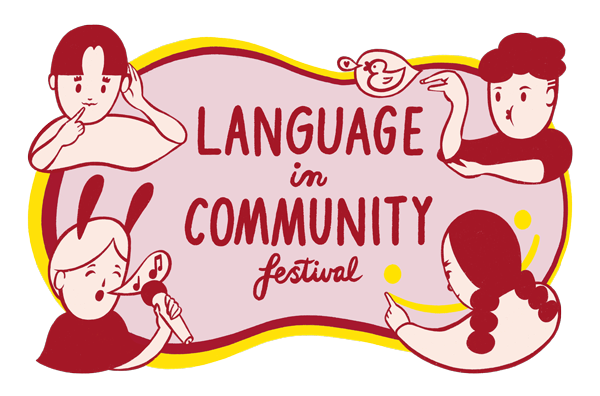Language preservation
Included here are a range of articles about the importance of preserving community languages and supporting cultural diversity in a meaningful way.
The 2021 census identified that almost a quarter of the Australian population speak a language other than English at home. This includes hundreds of different languages.
At the same time, Australia is well known for being a “graveyard of languages” (Professor Ingrid Piller); the result of decades of education and social policy that devalue language diversity and reduce multiculturalism to token expressions of food variety and “special days”.
Please send us any articles you would like to have included here on languagesfestival.net.
You can contact any of the following Festival organisers for further information or if you have any suggestions for the Festival: info@languagesfestival.net

Articles + Websites
Linguistic paranoia – why is Australia so afraid of languages?
“There is a clear hierarchy of languages in Australia. English is at the top. Next are the “classical” languages like French and German, particularly when learned at school. These are followed by languages deemed useful for Australia’s economic prosperity – e.g. Chinese, Indonesian and Japanese – but only if they are being learned as “foreign” languages. Because that is quite clever, learning a foreign language.
But if they are languages already spoken in the home, they slip down the hierarchy of languages, into the community languages pile along with about 245 other languages. Somewhere towards the bottom of that community languages pile are the Indigenous languages of Australia, about which most Australians know nothing.
The chances of those 245 community languages surviving in Australia are remote. Australia is remarkably adept at wiping out languages.”
Australia has been called ‘a graveyard of languages’. These people are bucking the trend
“Italians are losing their language at a faster rate than any other ethnic group in Australia. In the last 15 years or so there’s been a drop of around 80,000 people speaking Italian at home.
… a bilingual child has a five in six chance of losing their heritage language by the time they finish high school, according to Dr Cruickshank.
Or put simply, multilingual kids go to school to become monolingual, in the majority of cases in Australia.”
Growing up Bilingual in Australia
Lớn Lên Trong Môi Trường Song Ngữ
A ViệtSpeak Podcast
Growing up Bilingual in Australia is a podcast series that follows the lives and experiences of young families and their heritage language and culture within Australia’s monolingual mindset.
Host Chi Vu speaks with Vietnamese families in Melbourne’s western suburbs. We explore how it feels to be bilingual in Australia. We hear what motivates children, parents and grandparents to learn and maintain a language that is rooted in their identity. We also learn of the efforts to pass on a language that is one of the most spoken at home in Australia but not commonly taught in schools.
Greek language revival can follow Aboriginal example, say La Trobe experts
Spoken Greek in Australia and Aboriginal languages are not directly connected, but they are both victims to Australia’s ‘linguicide.’
With 92 percent of Indigenous languages disappearing, there seems little hope for heritage languages like Greek. But it isn’t too late said Dr Stavroula Nikoloudis, coordinator of the Greek Studies program at La Trobe University, and Linguistics Professor James Walker.
“Language can be revived,” Professor Walker told The Greek Herald.
He points to the resuscitated Kaurna language in South Australia, with conversations now being held in the once-forgotten tongue. We can learn from Indigenous groups.
How multicultural are we anyway? Community language and cultural diversity
Misty Adoniou, language and literacy specialist from the University of Canberra, talks about the relationship between multiculturalism and the everyday use of the 250 community languages across the country, and wonders why Australia still suffers from what she calls linguistic paranoia.
Then, language revivalist(link is external) and postgraduate at the University of New England, Callum Clayton-Dixon, a member of the Ambeyan Indigenous clan of northern New South Wales, explains his research work with the Anaiwan Language Revival Program.
Multilingual and bilingual children: questions and answers
Raising multilingual or bilingual children is a long-term commitment. To make multilingualism work for your child and family, there are things you can do each day and might need to think about over the long term. These things include:
• sticking with your heritage language, even when there’s pressure to choose English
• reminding yourself that using your heritage language helps to strengthen family bonds
• using your heritage language to play games, read books, cook food and do other fun things that make it positive for your child
• helping your child understand the benefits of multilingualism and bilingualism
• making sure your child gets plenty of chances to hear and use their heritage language
• talking to your child’s teachers and getting their support for your efforts
• getting support for yourself – for example, by talking to friends and family who are raising multilingual or bilingual children and finding resources in your community, like bilingual playgroups.
Australia is a graveyard for languages – The cost of not maintaining language diversity
In February 2023, Multilingual Australia organised a “Navigating Multiple Languages” roundtable discussion for multicultural, faith, and multilingual community members. The event aimed to provide a platform for people to share experiences, learn about language maintenance strategies and discuss barriers.
The roundtable identified three interrelated themes:
• The personal cost of language loss
• The impact of bad language policies on families
• Australia’s English-Only language systems are out of step with the rest of the world
These findings have been summarised in a comprehensive paper intended to be a valuable resource for governments, policymakers, teachers, community leaders, and others interested in promoting linguistic diversity.
